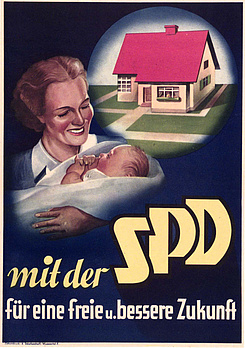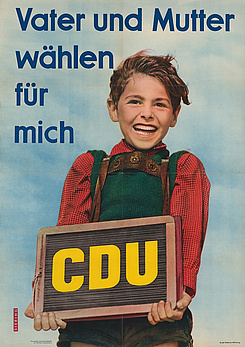Intergenerationality as a Democratic Problem. Generational Links in the Horizon of Parliamentary Decision-Making in the United Kingdom and West Germany, ca. 1950–1990



Researcher: Daniel Stienen
The United Kingdom and West Germany are two paradigmatic examples for western industrial democracies. After the Second World War they underwent a similar development: they both profited from the so-called Post-war Boom but then had to face profound economic and social challenges starting in the 1970s. This project takes a comparative approach. It addresses the question to what extent inter-generational perspectives were politicized in both countries. How did this affect the construction of time frames, and how did it modify expectations for policy-making? Incidents like the oil price crisis of the late 1970s but also more lingering developments, such as climate change and the demographic shift were essential external factors. All those issues begged the question of how to distribute resources in an equitable way between different generations. This project analyzes the role of “future generations” for political policy makers. Did politicians employ this figure of speech, especially in the fields of pension and climate change, to legitimize or to prevent reform projects? This raises further questions as to the extent to which the emergence of new social movements, which formulated new social expectations, also led to negotiations around the problem of representing minor, non-voting citizens.
Veröffentlichungen
Erste Erkenntnisse aus seiner Forschung veröffentlichte Projektmitglied Daniel Stienen 2025 in der Zeitschrift für Parlamentsfragen unter dem Titel: „Project 18“. Die Wahlalterdebatte in den USA und der Bundesrepublik Deutschland im transnationalen Vergleich (1965 bis 1972), ZParl 56 (2025), S. 332-349, doi.org/10.5771/0340-1758-2025-2-332 .
